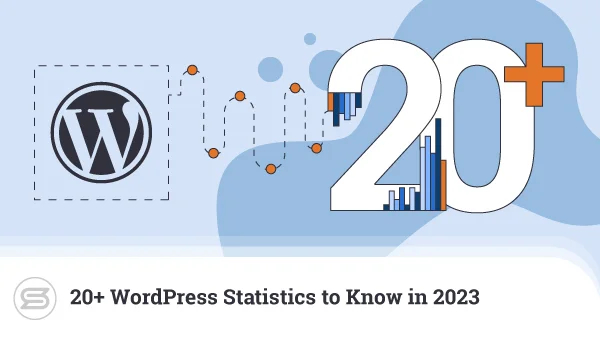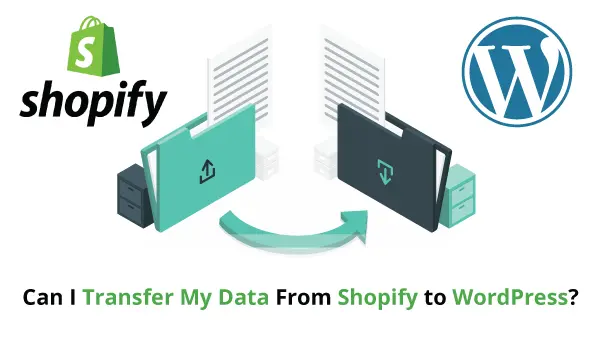Millions of WordPress-based projects are hosted on cPanel servers, proving that you don’t need any technical skills to launch a website these days.
On the one hand, you have a powerful content management system that lets you create a professional-looking site without writing a single line of code. On the other, you have cPanel’s graphical user interface for easy management of all aspects of your hosting service.
But what happens if you don’t have access to it? We know what you’re thinking:
Can I host my WordPress VPS website without cPanel?
Let’s find out.
What is cPanel?
cPanel is the most popular web hosting control panel. It allows users to control their web hosting accounts through an intuitive web-based interface. By default, it comes with tools for uploading, editing, and deleting files and databases, managing email and FTP accounts, controlling domains and their DNS zones, and many more.
VPS and dedicated hosting users often use cPanel in conjunction with WHM (short for Web Host Manager) – cPanel’s server administration platform. WHM also offers an easy-to-use interface, packing all the tools you’ll ever need to ensure your projects are hosted in the best possible environment.
Thanks to cPanel and WHM, managing a hosting account or an entire server can be nothing more than a point-and-click process, but this is far from their only advantage.
cPanel was built on a modular architecture, which means developers and service providers are free to create add-ons and further expand its functionality. As a result, hosting companies can also customize cPanel and improve the experience for their clients.
It’s all about the users, and given that a third of them base their projects on WordPress, it should be no surprise that managing the world’s most popular CMS through cPanel is a breeze.
cPanel and WordPress
CPanel’s first version appeared way back in 1996, and the hosting management platform hasn’t stopped evolving ever since. In late 2020, for example, the control panel developers decided to replace the old one-click WordPress installer with a much more advanced software solution.
The new cPanel solution is called WordPress Toolkit and comes in two versions:
- Lite – a free version for anyone with an active cPanel license
- Deluxe – a premium version offering even more advanced functionality
In addition to installing WP in seconds, WordPress Toolkit can easily change the admin password, log you into the WP dashboard, and put the site in maintenance mode.
The Deluxe version enables automatic updates for the WP core and associated add-ons, cloned and staging environments, and advanced security features. With the help of the tool, you can even install add-ons from WP’s official repository without logging into the dashboard.
WP Toolkit is undoubtedly a neat addition to cPanel’s arsenal of useful tools, but at $7.50 per month for a single account – the premium version might appear a bit pricey.
Unfortunately, while there is a free version of the WP Toolkit, using cPanel without paying a license is not an option.
In fact, cPanel is not the most budget-friendly web hosting control panel. In 2018, an investment company called Oakley Capital acquired cPanel, and about a year later, it overhauled the management platform’s pricing policy.
The new owners started charging hosts on a per-server and per-account basis, pushing the licensing fees up 25% to 50% on average. The increase for resellers and those who need a large number of cPanel accounts was even more significant. Unsurprisingly, both hosts and site owners started looking around for hosting setups that don’t involve cPanel.
cPanel Alternatives
While it is the most widely known platform of its kind, cPanel is far from the only way to control a server or a hosting account. Let’s have a look at some of the alternatives.
Plesk
Plesk is one of cPanel’s main competitors, but the same parent company actually owns both platforms. This becomes evident when you see Plesk’s WordPress management solutions.
The WordPress Toolkit cPanel announced in late-2020 has been a part of the Plesk core for a couple of years already. But unlike cPanel, Plesk doesn’t charge extra for it. The Toolkit arrives with limited features on the cheapest plan, while the bells-and-whistles version is only available on the pricier packages.
The features and interface are identical, meaning launching and managing a WordPress website with Plesk are just as easy as with cPanel. Because Plesk is one of the few web hosting management platforms that support Windows, this could be especially useful for WordPress users running Microsoft’s operating system.
WP management aside, Plesk also gives you control over the hosting account, and some of its fans even claim it’s easier to use than competitive tools. Indeed, the platform’s interface is intuitive enough and offers no shortage of tools and utilities to manage files, databases, email accounts, etc.
Plesk has a powerful customer management system as well, designed specifically for hosting providers and resellers. Similar to cPanel, this control panel has a modular architecture, helping the platform grow and evolve.
SPanel
SPanel is ScalaHosting’s proprietary hosting account management system available on all our managed VPS plans. It’s 100% compatible with cPanel, so migrating a website from one platform to another is quick and easy.
SPanel is designed to be an all-in-one solution, giving you an Admin Interface to control your virtual server and a User Interface for the projects hosted on it. You can create as many user accounts as you want at no additional cost and have full control over their quotas and level of access.
Every user account can control files, databases, email accounts, FTP accounts, domains, subdomains, DNS records, SSL certificates, and many more.
Similar to the rest of our hosting solutions, SPanel VPS solutions are protected by SShield – our unique real-time monitoring and security system.
The Softaculous autoinstaller is integrated into SPanel as well, and users who want to build their websites with WordPress can take advantage of SWordPress – our advanced WP management solution.
With it, you can install and configure WordPress with just a couple of mouse clicks. When set up, you can clone the installation, change the admin password, enable automatic updates for the WP core and your add-ons. SWordPress Manager comes with a security feature called Secure Lock, which makes your site extremely hard to hack.
Best of all – you get all this functionality without paying a penny over the price of your VPS plan.
No panel
Utilizing management platforms like cPanel, Plesk, and SPanel makes launching a WordPress website quick and easy.
Nevertheless, some people prefer a more hands-on approach. They rent self-managed servers with no control panel and set up the CMS manually.
To do that, you’ll need to start with an SSH client with the correct privileges to install and create a MariaDB or MySQL database. You can then upload WordPress via SSH or FTP.
After setting the right permissions, you need to edit the wp-config.php file to prepare it for installation. Finally, you can use the web-based installer to complete the setup.
Another option is to use WP-CLI – an open-source tool for managing WordPress and its add-ons through the console. It’s lightweight, has no specific requirements, and for people who know what they’re doing – it could be a massive time-saver.
Although you can automate some management tasks, going with the no panel option involves actively using the command-line interface.
ScalaHosting Control Panel Options
As a company with over a decade in the business, we know that our hosting solutions need to cater to both complete beginners and experienced tech-savvy site admins. That’s why our plans offer such a wide diversity of hosting options.
For example, using our shared hosting packages, project owners can manage their websites and emails through cPanel.
Going a step forward, our managed VPS solutions offer more power and two control panel options – SPanel or cPanel. Both will give you all the tools you need to install WordPress and manage the installation. Cpanel and SPanel support WP-CLI, so if you want to use the console to manage your site, you’re more than welcome to do it.
Still, you should also consider the costs involved. CPanel VPS clients have to prepare for additional licensing fees, while SPanel users have nothing to worry about in that aspect.
If you’re a Plesk fan, you will find what you’re looking for as well. With our self-managed virtual private servers, you can install any control panel you want. You can even specify a Windows VPS if you’re more comfortable using the Microsoft OS.
Nevertheless, you’re in complete control of the self-managed server, so installing WordPress without a control panel is also possible if that’s your cup of tea.
It’s up to you to choose which option suits you the most.
Conclusion
As it continues to evolve, cPanel regularly introduces new features, and a good portion of them are designed specifically with WordPress users in mind. Some people are so used to the platform so much, they might be led to believe that building a WP website without cPanel is impossible.
This is far from the case.
In fact, as more and more solutions appear on the market, cPanel faces such fierce competition that WordPress admins might want to check out.
FAQ
Do I need cPanel to host a WordPress website?
Generally speaking, you don’t need cPanel to install WordPress and build a website. Almost any other control panel solution can help you with that, and you can even configure WP without one. Still, manually installing WordPress might be a bit complicated for novice users unfamiliar with the process.
Can I host my WordPress website anywhere?
Anyone can download the WordPress core from WordPress.org for free and install it on a hosting server. The only requirements are:
- PHP version 7.4 or higher
- MySQL 5.6 or MariaDB 10.1 or higher
- HTTPS support
How much does it cost to host a WordPress website?
Prices for WordPress services vary widely, and the ultimate cost depends on the type of hosting you choose. You can get a shared plan for as little as a few dollars per month, and if you need more power – VPS packages are available for around $10-$20/mo.
In case you also want to register a domain name, that goes for about $10 – $15/year, and if you use cPanel – you need to factor in the licensing fees as well.
ScalaHosting – Can I Host My WordPress VPS Website Without cPanel?



